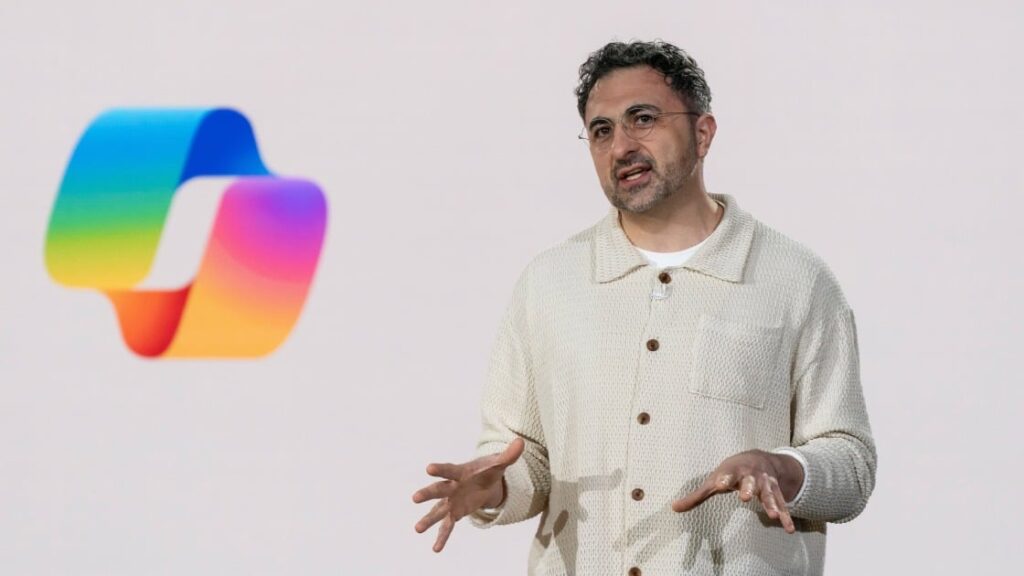A Microsoft executive is questioning why more people aren’t impressed with AI, a week after the company touted the evolution of Windows into an “agentic OS,” which immediately triggered backlash.
“Jeez there so many cynics! It cracks me up when I hear people call AI underwhelming,” tweeted Mustafa Suleyman, the CEO for Microsoft’s AI group.
Suleyman added that he grew up playing the old-school 2D Snake game on a Nokia phone. “The fact that people are unimpressed that we can have a fluent conversation with a super smart AI that can generate any image/video is mindblowing to me,” he wrote.
This Tweet is currently unavailable. It might be loading or has been removed.
Microsoft has been promoting new conversational AI chatbot experiences in Windows 11 that can be quite helpful. Last week, Windows boss Pavan Davuluri tried to talk up the AI features, tweeting, “Windows is evolving into an agentic OS, connecting devices, cloud, and AI to unlock intelligent productivity and secure work anywhere.”
This Tweet is currently unavailable. It might be loading or has been removed.
But instead of arousing genuine interest, Davuluri’s tweet set off some harsh feedback from at least some users put off by AI. “Stop this non-sense. No one wants this,” wrote one programmer. “You live in a Twitter bubble where AI will create tons of wealth and you will perish unless you adopt it now. But your users are not in this bubble. They don’t care about any of this shit.”
After turning off the public replies to his original tweet, Davuluri later responded to the criticism, posting: “I’ve read through the comments and see focus on things like reliability, performance, ease of use and more.” The same tweet also dropped any mention of AI, instead emphasizing Microsoft’s commitment to improve the Windows experience and other pain points, he said.
Still, Suleyman’s tweet seems to signal frustration from Microsoft when the company has made AI a centerpiece to its software strategy. Days earlier, he also dismissed the idea that the AI industry is facing a bubble, adding: “AI is the smartest, most capable technology ever invented. And it keeps improving even faster than we thought possible.”
Recommended by Our Editors
Suleyman’s tweet has since received some of its own backlash when it’s clear that generative AI faces problems, including “hallucinating” the wrong information and sparking legal battles about copyright infringement, all the while potentially taking jobs away from humans.
However, Tesla CEO Elon Musk seems to agree with Suleyman’s take. “Good point,” Musk wrote in response. Of course he’s also a billionaire at the helm of his own startup, xAI, which is taking on OpenAI’s ChatGPT and even Microsoft itself.
Get Our Best Stories!
Your Daily Dose of Our Top Tech News
Sign up for our What’s New Now newsletter to receive the latest news, best new products, and expert advice from the editors of PCMag.
Sign up for our What’s New Now newsletter to receive the latest news, best new products, and expert advice from the editors of PCMag.
By clicking Sign Me Up, you confirm you are 16+ and agree to our Terms of Use and Privacy
Policy.
Thanks for signing up!
Your subscription has been confirmed. Keep an eye on your inbox!
About Our Expert
Michael Kan
Senior Reporter
Experience
I’ve been a journalist for over 15 years. I got my start as a schools and cities reporter in Kansas City and joined PCMag in 2017, where I cover satellite internet services, cybersecurity, PC hardware, and more. I’m currently based in San Francisco, but previously spent over five years in China, covering the country’s technology sector.
Since 2020, I’ve covered the launch and explosive growth of SpaceX’s Starlink satellite internet service, writing 600+ stories on availability and feature launches, but also the regulatory battles over the expansion of satellite constellations, fights with rival providers like AST SpaceMobile and Amazon, and the effort to expand into satellite-based mobile service. I’ve combed through FCC filings for the latest news and driven to remote corners of California to test Starlink’s cellular service.
I also cover cyber threats, from ransomware gangs to the emergence of AI-based malware. Earlier this year, the FTC forced Avast to pay consumers $16.5 million for secretly harvesting and selling their personal information to third-party clients, as revealed in my joint investigation with Motherboard.
I also cover the PC graphics card market. Pandemic-era shortages led me to camp out in front of a Best Buy to get an RTX 3000. I’m now following how President Trump’s tariffs will affect the industry. I’m always eager to learn more, so please jump in the comments with feedback and send me tips.
Read Full Bio

